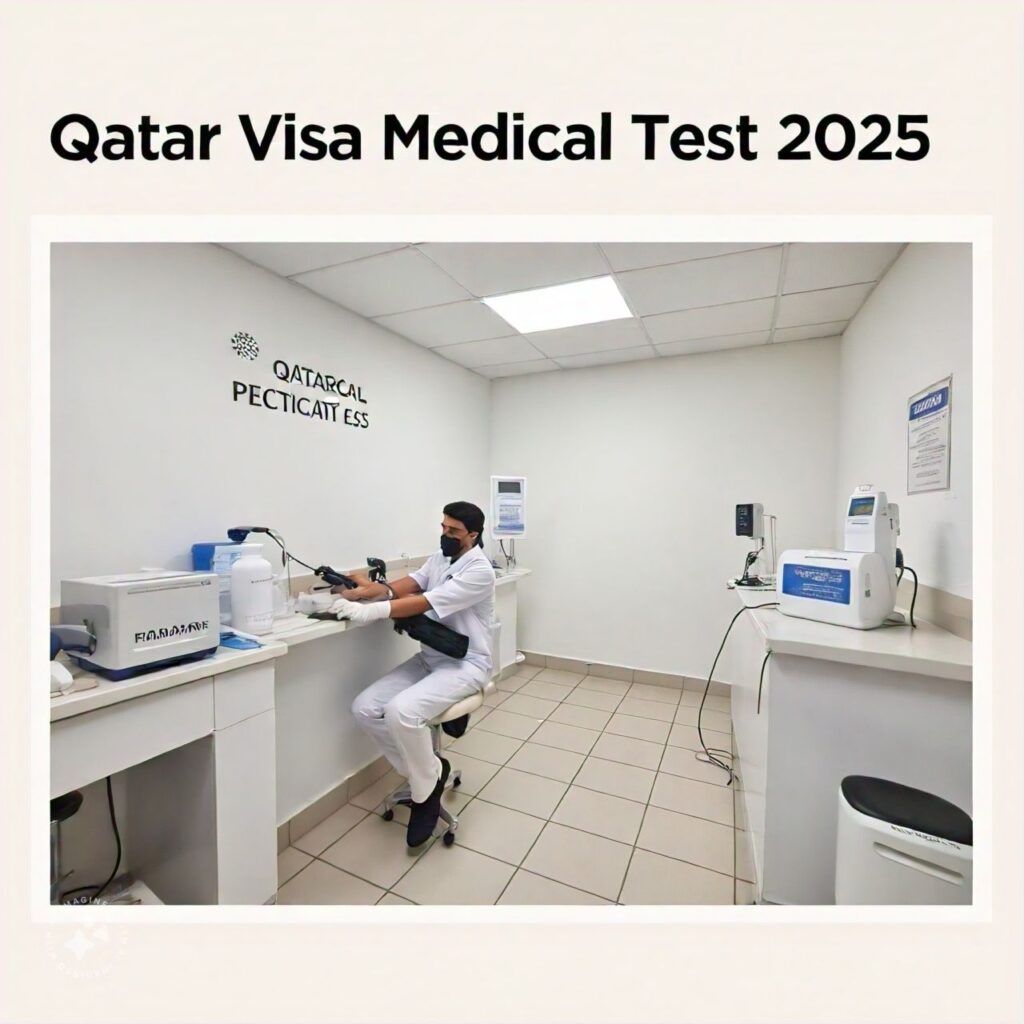As someone who’s navigated the complex world of international travel and visa requirements, I understand how overwhelming medical tests can feel. When I first learned about the Qatar visa medical test 2026, I was overwhelmed with questions and uncertainties. What would the test involve? How should I prepare? These thoughts raced through my mind, much like they might be racing through yours right now.
What is a Qatar Visa Medical Test?
A Qatar visa medical test is a mandatory health screening required for individuals seeking employment, residence, or certain types of visas in Qatar. Gulf Cooperation Council (GCC) countries, including Qatar, have stringent health regulations to protect public health and ensure the well-being of residents and workers.
Key Purpose of the Medical Test
The primary objectives of this medical examination include:
- Screening for communicable diseases
- Verifying overall health status
- Preventing potential health risks in the workplace
- Ensuring public health safety
Who Needs a Qatar Visa Medical Test?
Medical tests are typically required for:
- Work visa applicants
- Residency permit seekers
- Student visa candidates
- Family reunion visa applicants
Comprehensive Medical Screening Components
1. Physical Examination
Healthcare professionals conduct a thorough physical assessment, including:
- Height and weight measurements
- Blood pressure check
- General physical condition evaluation
2. Laboratory Tests
Standard laboratory screenings typically include:
- HIV/AIDS test
- Hepatitis B and C screening
- Tuberculosis (TB) examination
- Syphilis screening
- Blood group identification
- Complete Blood Count (CBC)
3. Specialized Tests
Depending on specific visa requirements, additional tests might include:
- Chest X-ray
- Psychological assessment
- Drug screening
Preparing for Your Qatar Visa Medical Test
Documentation Requirements
Essential documents to bring:
- Valid passport
- Visa application documents
- Identification photographs
- Medical history records
Pre-Test Recommendations
- Get adequate rest before the test
- Stay hydrated
- Avoid heavy meals before blood tests
- Wear comfortable clothing
Testing Procedure Step-by-Step
- Registration at authorized medical center
- Document verification
- Physical examination
- Blood and urine sample collection
- X-ray and additional screenings
- Medical report generation
Common Challenges and Solutions
Potential Test Complications
- False-positive results
- Incomplete documentation
- Language barriers
Recommended Solutions
- Double-check all medical records
- Use certified translation services
- Consult immigration professionals
Cost and Duration
Medical test costs range between QAR 200-500 (approximately $55-$137). The entire process typically takes 2-4 hours, with results available within 3-7 business days.
Legal and Ethical Considerations
Qatar’s health regulations prioritize:
- Patient confidentiality
- Accurate medical reporting
- Non-discriminatory practices
Tips for a Smooth Medical Test Experience
- Arrive early
- Bring all required documents
- Stay calm and relaxed
- Follow medical staff instructions
Conclusion: Your Health, Your Journey
Navigating the Qatar visa medical test might seem daunting, but with proper preparation and understanding, you’ll breeze through the process. Remember, this test isn’t just a bureaucratic requirement—it’s a crucial step in ensuring your and others’ health and safety.
FAQs for Qatar Visa Medical Test
When I first started my journey to work in Qatar, I was buried under a mountain of questions about the medical test. Each inquiry felt like solving a complex puzzle. Let me share the most common questions I encountered and the answers that finally brought clarity to my visa medical test experience.
General Medical Test Questions
1. What is a Qatar Visa Medical Test?
A Qatar visa medical test is a mandatory health screening required for:
- Work visa applicants
- Residency permit seekers
- Student visa candidates
- Family reunion visa participants
2. Why is the Medical Test Mandatory?
Qatar’s health regulations mandate these tests to:
- Prevent communicable disease spread
- Ensure workplace health safety
- Protect public health
- Maintain high healthcare standards
3. Where Can I Get the Medical Test Done?
Authorized medical centers in Qatar conduct these tests. Key locations include:
- Ministry of Health approved clinics
- Hamad Medical Corporation facilities
- Specialized medical centers in major cities
Test Preparation Questions
4. What Documents Should I Bring?
Essential documents include:
- Valid international passport
- Visa application paperwork
- Recent identification photographs
- Complete medical history records
5. How Should I Prepare for the Test?
Recommended preparation steps:
- Get adequate rest
- Stay hydrated
- Wear comfortable clothing
- Avoid heavy meals before blood tests
Medical Screening Details
6. What Tests Are Included?
Standard medical screenings typically involve:
- HIV/AIDS comprehensive testing
- Hepatitis B and C screening
- Tuberculosis (TB) examination
- Syphilis medical investigation
- Blood group identification
- Complete Blood Count (CBC)
7. Are Additional Tests Required?
Potential additional screenings:
- Chest X-ray
- Psychological assessment
- Drug screening
Cost and Time Considerations
8. How Much Does the Medical Test Cost?
Test expenses range between QAR 200-500 (approximately $55-$137).
9. How Long Does the Process Take?
- Total testing time: 2-4 hours
- Result availability: 3-7 business days
Medical Test Challenges
10. What if I Have a Medical Condition?
Guidance for specific health situations:
- Disclose pre-existing conditions
- Bring medical documentation
- Consult immigration medical experts
11. Can I Retake the Test?
- Inconclusive results allow retesting
- Failed screenings may require:
- Additional medical evaluations
- Specialist consultations
- Potential visa application reconsideration
Legal and Ethical Considerations
12. How Confidential Are My Medical Records?
Qatar’s health regulations guarantee:
- Strict patient confidentiality
- Secure medical data management
- Non-discriminatory medical practices
13. What Happens if Test Results Are Positive?
Potential scenarios for positive test results:
- Communicable disease identification
- Medical treatment recommendations
- Possible visa application impact
International Traveler Considerations
14. Do Other GCC Countries Recognize These Tests?
Gulf Cooperation Council (GCC) countries often:
- Share similar medical testing standards
- Recognize standardized medical screenings
- Maintain consistent health regulation protocols
15. How Often Are Medical Tests Valid?
Medical test validity typically:
- Remains valid for 2 years
- Requires renewal for continued visa status
- May have specific visa type variations
Practical Tips for Success
16. Best Practices for a Smooth Medical Test
Recommended strategies:
- Arrive 30 minutes early
- Organize all required documents
- Maintain a calm demeanor
- Follow medical staff instructions
Final Thoughts: Navigating Your Medical Test Journey
Understanding the Qatar visa medical test transforms an intimidating process into a straightforward step toward your international goals.
Disclaimer: Medical requirements can change. Always verify current regulations with official Qatar government sources or authorized visa processing centers.

